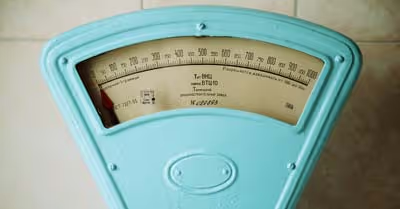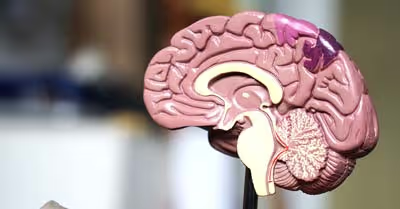Table of Contents
How Does Byetta Cause Weight Loss?
Byetta is the common name for an ingredient found in a group of medicines known as glucagon-like peptide-1 agonists, or GLP1 for short. Byetta is injected under a person’s skin and travels to the pancreas, where insulin is made.
Insulin is a hormone that is responsible for helping us turn sugars into energy. When a person’s body can’t produce enough insulin on its own, or starts to use insulin ineffectively, diabetes often is the result.
Byetta can be used alongside other diabetes drugs as well as on its own to help people control their diabetes. One of its biggest breakthroughs, however, is the role it has played in weight loss.
Many diabetics struggle with weight gain, since their sugars don’t break down like other people’s and they don’t produce enough insulin to help the process. Other diabetics struggle with weight gain because many medicines that are prescribed to help with their diabetes cause weight gain as a side effect.
Additionally, for some Type-2 diabetics, their weight before their diagnosis was already problematic, and losing weight will help them combat their diabetes diagnosis.
Let’s look more closely at how Byetta plays a role in causing weight loss.
1. Byetta Suppresses a Person’s Desire to Eat as Much
Perhaps one of the best ways that Byetta is effective in causing weight loss in the people who take it is that it has been proven to actually suppress a person’s appetite.
Studies have shown that appetite suppression is a common occurrence when a person is taking Byetta, because it makes a person want to eat less. In fact, in a clinical study that lasted 24 weeks, people who were taking Byetta with no other medications found that they lost 6 to 6 1/2 pounds on average when they also combined their Byetta usage with good diet and exercise habits.
Those who were given the placebo had significantly less weight loss, closer to 3 pounds on average.
Though science has not yet helped us figure out why a person’s appetite changes when using Byetta, it is definitely a positive side effect, especially for many people who have been diagnosed with Type-2 diabetes.
Oftentimes, being significantly overweight can contribute to a Type-2 diabetes diagnosis. Losing some weight will make managing their diabetes much easier for many people.
2. Byetta Lowers a Person’s Blood Sugar Levels
Blood sugar is a challenge for diabetics. Because their bodies don’t produce insulin (or don’t produce enough of it) their body can’t regulate the amount of sugars in their bloodstream, which results in a multitude of health complications, such as increased heart rate, vision problems, overwhelming hunger and thirst, dizziness and kidney disease, just to name a few.
When you have too much sugar in your blood, it can wreak havoc on your body and cause you to gain weight as well as cause other problems, if left untreated. This is where Byetta can help.
Byetta works differently than other medications that focus on the hormone insulin. Byetta helps to reduce the hormone glucagon. Glucagon is the hormone that raises blood sugar levels after we eat a snack or a meal.
If this all sounds confusing, I get it. Just remember this: the hormone, glucagon, increases your blood sugar level and the hormone, insulin, lowers it. As you are probably figuring out, we need a balance of both in our bodies to process our sugars correctly.
This is where Byetta works its magic. By helping lower the amount of glucagon in a person’s body, it’s also lowering their blood sugar. And, a lower blood sugar is important for diabetes management and weight loss.
3. Byetta Forces Food to Travel Through Our Bodies at a Lower Rate
A third, and very interesting new discovery is that Byetta can actually play a role in how fast our food is digested, which may help in a person who is taking the drug feel fuller, and longer.
As I mentioned earlier, Byetta works directly with the hormone glucagon by interacting with it and not letting it increase a person’s blood sugar levels when they are eating a meal that could make those levels spike. But, it’s also been found that Byetta works in between meals as well.
Another recent study found that people using Byetta for their diabetes control found that it took, on average, 86 more minutes before they began to feel hungry after a meal. This allowed them over an additional hour to engage in other activities before they began to consider what they wanted to eat next.
The same study cited above also found that – when a person did eventually consume their next meal, they tended to eat less than normal, suggesting that the Byetta was still helping their bodies process the food from their previous meal.
This has been a major positive for people with Type-2 diabetes who are also trying to lose weight. Being able to go longer before eating, or avoiding in-between meal snacking has had multiple positive effects, one big one being a person’s waistline.
Some Additional Things To Know About Byetta
Byetta, though some believe it to be a major breakthrough for diabetes patients and weight loss, is not for everyone. As with any medication or change to your diet or routine, you should consult a physician before starting any new treatment plan.
That said, here are a couple of things you should know about Byetta if you are considering using it to help with your own weight loss journey.
Byetta Isn’t For Everyone
As of now, Byetta has not been approved by the FDA as a weight-loss drug, and is only approved to be used by those who have been diagnosed with Type-2 diabetes.
Though there is some talk in the medical and pharmaceutical industries that this drug will eventually be approved as a weight loss option for those who have not been diagnosed with Type-2 diabetes, there isn’t enough to know about it yet to guarantee that.
In fact, Byetta has proven to have some side effects that would make many health care providers nervous about prescribing it to someone unless it was truly necessary.
Byetta has been known to cause pancreatitis flare-ups, as well as nausea, dizziness, GI bleeds, and heartburn. It also has some reactions with other prescribed medications that are concerning, so many doctors won’t prescribe it if a person is taking other medications.
Byetta is also expensive, coming in at around $200 a month. And it would be hard to find an insurance company that would cover that cost unless it is proven a person is using it to help control their Type-2 diabetes.
Byetta Isn’t a Wonder Drug for Weight Loss
Even if you’re a good candidate for the use of Byetta, it isn’t a wonder drug for weight loss.
Byetta can’t make the pounds disappear. It may be able to help stave off some of the effects of a high-sugar meal or aid in readjusting your blood sugars when necessary, but it won’t make any extra pounds just melt away.
As with most weight loss plans, Byetta is effective at helping diabetics lose weight and work toward a healthier lifestyle only if they are willing to pitch in and help.
A healthy diet and a reasonable amount of exercise will be necessary for someone to see the results they’re hoping for. Sadly, we still haven’t invented a wonder drug that will allow us to eat whatever we want and stay healthy. Some of the work still must be done by us.
Recent Articles















